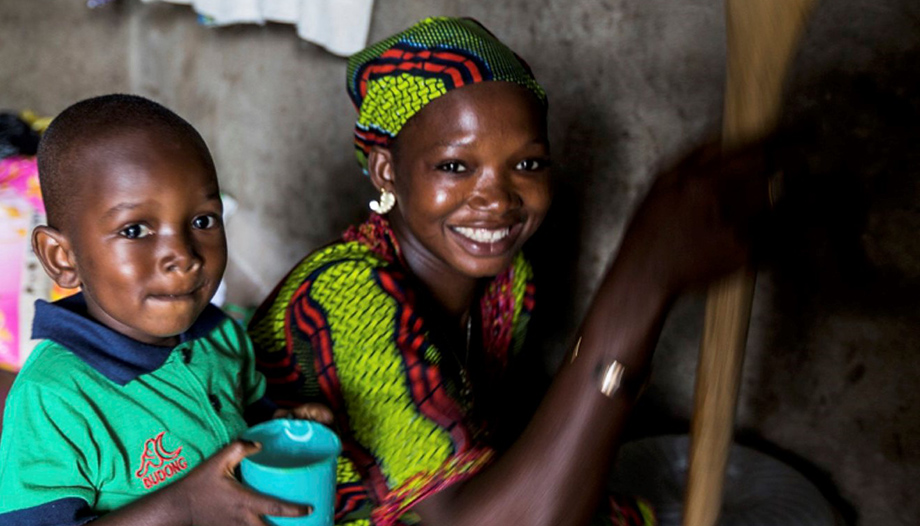Original Text of the article in Spanish here
Translation: Peter Damian-Grint
Harambee
On April 26, the Nigerian economist Franca Ovadje will receive in Madrid the Harambee 2022 African Woman Prize. She will join the list of African women, including doctors, teachers and researchers who have won this prize, which recognizes individuals or institutions that have contributed, helped or solved problems relevant to the dignity, rights and equality of African women.
Harambee, an initiative born at the time of the canonization of St Josemaría Escrivá, has from the start promoted educational initiatives in Africa and about Africa, with development projects in sub-Saharan Africa and communication and awareness-raising activities in the rest of the world. In this interview for Omnes, Harambee’s president, Antonio Hernández Deus, highlights the NGO’s commitment to the fields of action of education, health, promotion of women and professional development that it has developed in more than a hundred projects in 22 African countries with a key target: African women.
For more than 10 years, Harambee has been awarding prizes to African women leaders in different fields and who work for women in Africa. Why was the prize started?
This prize was created to make Harambee’s objectives visible: to show that women in Sub-Saharan Africa have talent and capacity, and all they need in some cases is a little help to develop them.
With this prize, we want to highlight the trajectory of some women who have been successful in their country. We’ve already awarded it to fourteen African women from different professional fields: all of them have promoted initiatives in the service of their country and that’s why they have received the prize.
In recent years we’ve been sponsored by René Furterer, which has been a great help in developing the prize.
Why don’t you focus on a “welfare” approach to African women?
Welfare for African women is necessary, but it’s already being done by other NGOs. We prefer to show the smile of Africa, and that’s why we focus our work on long-term projects.
There are different ways of helping in Africa. We can help people by giving them a fish to feed them; or by providing fishing rods so they can get their own food; or by teaching them how to make fishing rods with the materials they have available—this last way of helping is the one we’re developing. Those smiles of satisfaction that we receive from the Africans, for having achieved what they need by their own means, with a little help, is our greatest motivation for continuing working for African women and for Africa.
What makes Harambee different from other projects for women in Africa?
There are many other entities that help women in Africa. What makes us different from other organizations is the way we approach development aid.
Our projects are promoted and implemented by Africans themselves, and they aren’t intended to be aid-dependent, but rather to finance themselves into the future. We focus our field of action on education, health, promotion of women and professional development.
Ilomba Rural School (Côte d’Ivoire) students with scholarships from Harambee ONGD
Our identity is also very largely defined by the way the projects are carried out. First of all, people from sub-Saharan Africa identify particular problems and propose specific projects to Harambee. At Harambee we do a feasibility study and decide which ones to support, taking into account the possibilities of financing and fundraising that we can undertake. Then these projects are managed and executed by the beneficiaries themselves.
From Harambee we make sure that they’re getting the assistance they really need. To avoid money being diverted or wasted, we look for altruistic local collaborators who will accompany the projects and guarantee that they put together the documentation needed in order to be able to send the money requested for them to be carried out. Once a project has been approved for implementation, Harambee ensures that it’s carried out as planned and that an account of the expenditure is provided to the funders.
Although we work in the short and medium term, we always ensure that all projects have continuity into the future: that’s why we’re a Development NGO (NGDO).
Women awarded by Harambee
Since its inception, among the women awarded we have seen educators, doctors, economists… women who are real leaders in their country, and above all concerned about education. Are education and equal opportunities keys to the African continent?
Yes, as we’ve seen in Harambee over the last twenty years, education is the key to improving people. And improving someone’s education improves his family, his environment and his country. And it’s very inspiring to see the example of other people. Especially for women, who in some areas of sub-Saharan Africa are the most forgotten of all.
In Harambee NGDO we believe in giving opportunities to all Africans, so they can move their countries forward. But women need more help to achieve this. They’re all the hope of Africa.
Do you think they are also an example for European women?
Yes, women who overcome seemingly insurmountable difficulties and break through into new areas are certainly an example. In addition, African women stand out especially because they transmit hope and optimism, values that are much needed nowadays.
Do we still have a “charity” vision of the African continent, as if everything “needed aid”, instead of considering, for example, many features of their lives—family, appreciation for their children, etc.—as desirable and something to imitate?
In addition to what you mention about family, children, tribal solidarity…, yes, we believe that Africa has a lot to teach us. When you visit Africa, the first thing that strikes you is the number of smiling people you meet. They know how to overcome their difficulties with joy and creativity. This way of living can teach us on the old continent how to regain our youth.












